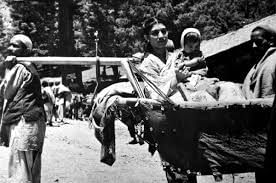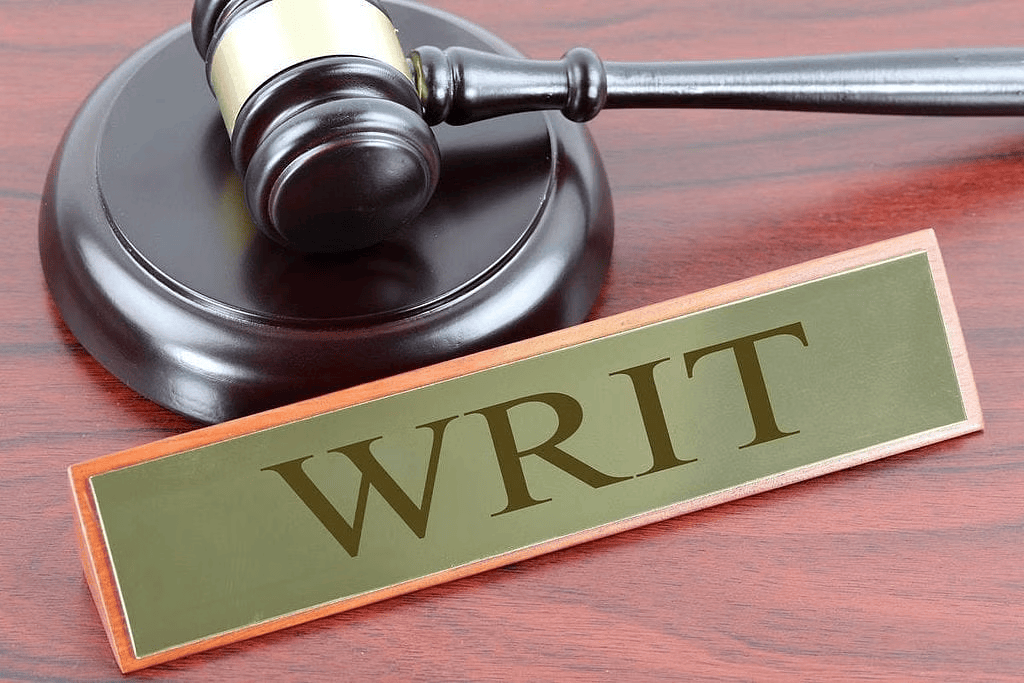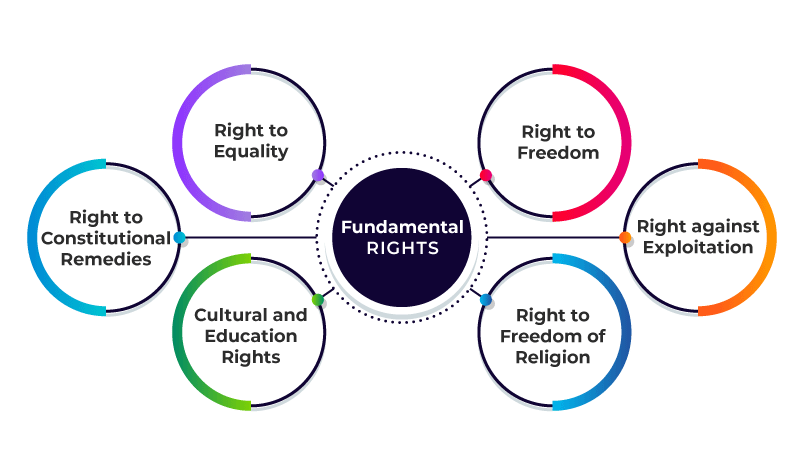Glossary and Important Information - Democratic Rights | Social Studies (SST) Class 9 PDF Download
Glossary and Important Information
1. Begar: Begar is a practice where the worker is forced to render service to the ‘master’ free of charge or at a nominal remuneration. When this practice takes place on a life-long basis, it is called the practice of bonded labour.

2. Democracy: Democracy is a system of government where power is held by the people, typically exercised through elected representatives.
3. Writs : A formal document containing an order of the court to the government issued only by High Court or the Supreme Court.

4. Rights : Rights are the reasonable claims of persons recognised by society and sanctioned by law.
5. Amnesty International : It is an independent international organisation of volunteers who campaign for human rights. It highlights violation of human rights on over the world.
6. Claim : A demand for legal or moral entitlement which a person makes of fellow citizens, society or the government.
7. Covenant : A promise made by individuals, groups or countries to uphold a rule or principle.
8. Dalit : A person belonging to a low caste also known as scheduled castes and depressed classes.
9. Ethnic Group : A group of people who share a common ancestry. They are bound together by common cultural practices, religious beliefs and historical memories.
10. Summons : An order issued by a court asking a person to appear before it.
11. Democratic Rights: Democratic rights are the rights that are essential for the functioning of a democratic society. They include the right to vote, the right to freedom of speech and expression, the right to equality, and the right to participate in political activities. These rights ensure that citizens can express their opinions, participate in governance, and be treated equally by the state.
Fundamental Rights
These are the basic human rights which are given to every citizens in a democracy for the development of their personality. There are 6 Fundamental Rights guaranteed by the constitution to the citizen of India. These are discussed as follows:

Right to Equality:
Ensures equal treatment before the law and prohibits discrimination on grounds of religion, race, caste, sex, or place of birth.Right to Freedom:
Guarantees freedoms such as speech, expression, assembly, association, movement, residence, and profession.Right against Exploitation:
Prohibits human trafficking, forced labor, and employment of children in hazardous occupations.Right to Freedom of Religion:
Protects the freedom of individuals to profess, practice, and propagate religion, subject to public order, morality, and health.Cultural and Educational Rights:
Provides minority communities with the right to conserve their culture, language, and establish educational institutions of their choice.Right to Constitutional Remedies:
Ensures the right to move the court for enforcement of fundamental rights through writs such as habeas corpus, mandamus, prohibition, quo warranto, and certiorari.
|
55 videos|525 docs|78 tests
|
FAQs on Glossary and Important Information - Democratic Rights - Social Studies (SST) Class 9
| 1. What are the fundamental rights guaranteed to citizens in a democracy? |  |
| 2. How do fundamental rights contribute to democracy? |  |
| 3. Can fundamental rights be restricted or suspended? |  |
| 4. What is the significance of the right to equality in a democratic society? |  |
| 5. How can citizens protect their fundamental rights? |  |






















